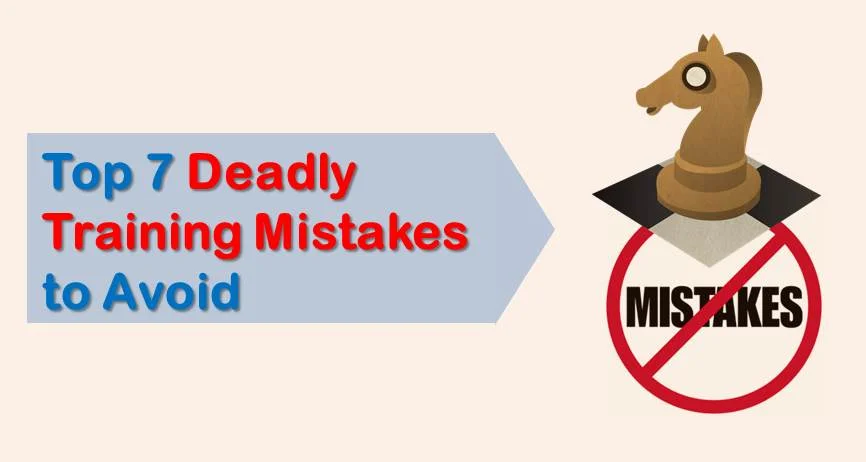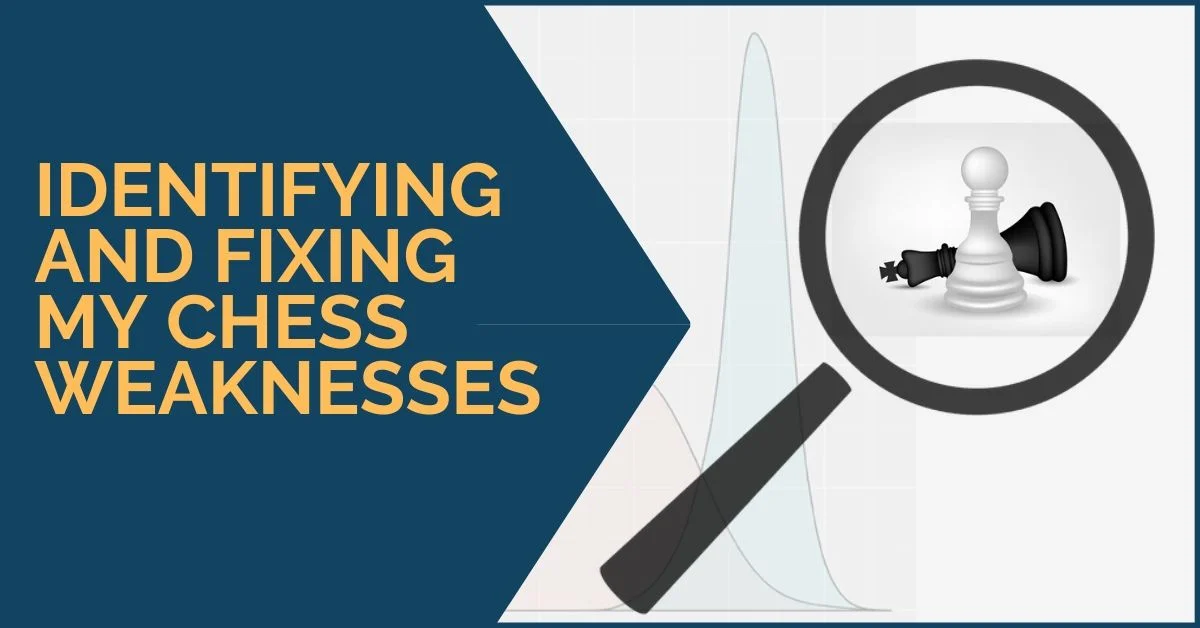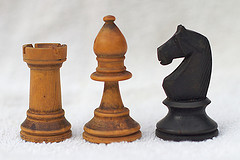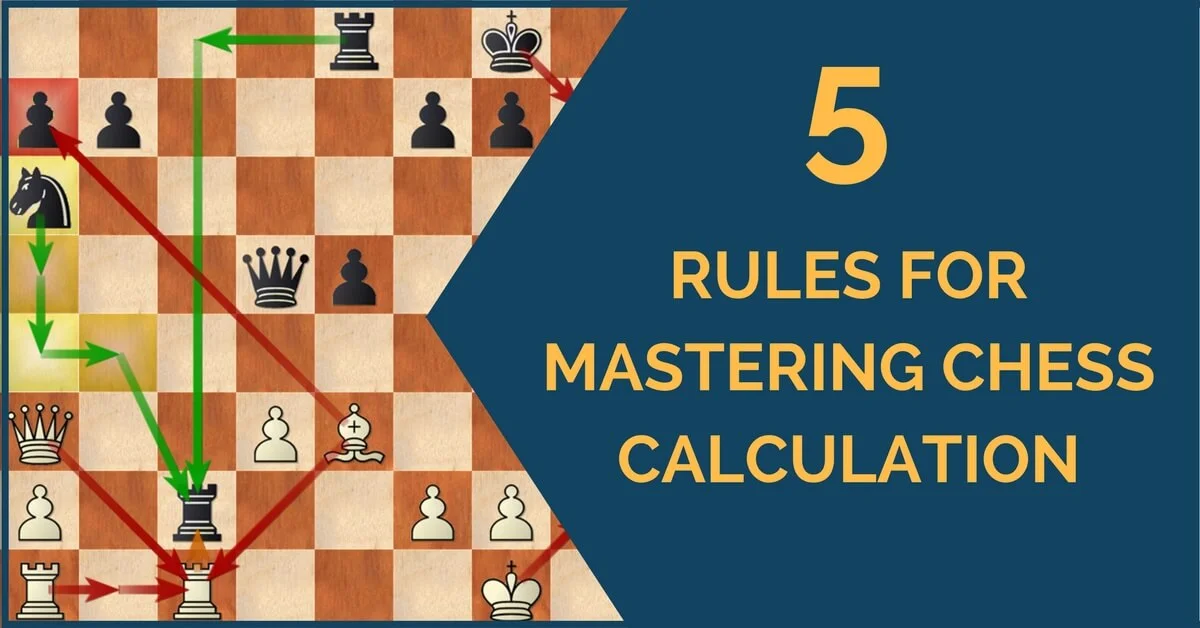Top 7 Deadly Training Mistakes to Avoid

“How to improve at chess” is perhaps the most common and important question a chess player of any strength asks. In today’s article, we will focus more closely on this very important topic.
Together, we will try to understand what are the seven training mistakes that you should avoid at all costs in order to get better at chess.
1. Not working on fundamentals
Most chess players have preferences. They favor studying certain things, over the others. They favor playing certain time controls, completely avoiding the others. The most common problem that most chess players are facing, especially on the under 2200 level, is that they spend the majority of their time focusing on the wrong things.
Instead of working on the big 3: tactics, endgames and positional chess, they spend most of their time on studying offbeat lines, unusual traps, and sacrifices. These are indeed important topics, but not nearly as important as the big 3 above.
Don’t make this mistake. Spend your time where it will give you the most return, per hour spent. If you follow this simple advice, your chess strength will start increasing week after week.
2. Not having a study plan
Most people have no clue about the study plan. They have books, a couple [dozens] of favorite websites, some chess DVDs and software. Most people think that quantity of chess material is the key to making progress at chess. Let me give you just one example.
I know one chess player who is in his 50s and have collected the whole library of chess materials. He has few hundred chess volumes, dozens of chess DVDs and copies of a pretty much every chess software known to men. Did it help him to become a stronger chess player? He was 1200 Elo rated 30 years ago, he gained only 100 points till now mostly due to rating inflation.
He did not study any single of his books from cover to cover. He did read some of the books, but he did not study it deeply. When I asked him why doesn’t he study his books, he said that he has too many and doesn’t know where to start and in what order to read them.
He had no clue about how to work on his chess.
What should he do differently? First of all, he needs to have a plan of what elements of chess he needs to work on. Then, he needs to decide how much time he should spend on each of these elements. Afterwards, he needs to find appropriate materials and put work.
Some may be skeptical and think that a player who did not improve in 30 years is not capable of playing better chess any better than he plays now.
You’d be surprised to know that after learning about how to work on chess and following the routine, he picked up 250 points in under 6 months. Not only that, but he also gained confidence and recently drew an important game against a FIDE Candidate Master, who was 400 points higher rated.
The lesson is simple. Have a study plan. A good study plan will make all the difference in the world for your game.
Most players need to have a clear guidance in order to improve. They need to be shown what to train, how much time to spend on it and what to expect. Studying goes much easier if you follow guidelines of a training program on a day-by-day basis rather than if you do everything on your own.
Why reinvent the wheel when you can just use one?
Click here to start your training using the day-by-day program.
3. Not analyzing your own games
Everyone loves winning. It makes you feel accomplished and happy. Everyone hates losing. It makes you feel depressed and can even keep some individuals awake at night. Winning feels great, but oddly enough we learn the most from the games we lose. You probably knew that already. It is indeed true, but only with a condition that you go over the game, and study it in great detail.
Most chess players don’t like analyzing lost games. It makes them feel bad again like they have lost it over and over again. They look forward even less showing off their losses and discussing them with their peers. This is a very natural behavior, but it does not help you to learn from the games you lost. If you learn to suppress the negative emotions associated with analyzing lost games and start discussing them with your peers, you chess will be nowhere near to where it is now.
Did you know that Grandmasters may spend hours and hours analyzing their lost games, trying to figure out what went wrong, at what exact moment of time and why? That’s a way to go if you want to become a strong player.
4. Not being consistent
Why don’t I play like Carlsen, Kasparov or Fischer? I studied chess for the whole 2 hours this week!
This sounds silly, doesn’t it? You’d be surprised to know how many chess players think this way. They don’t necessarily ask why don’t they play like Kasparov, but they get frustrated about the fact that they cannot improve, by spending an hour or two on chess every other week, every other month.
You’ve got the idea.
If you want to achieve anything you need to apply yourself and you must be consistent. I wrote many times that it is much better to work on chess for 45 minutes every day, rather than spend whopping 5 and half hours once a week.
That’s what our 21 Days Training Course is all about. It teaches you to consistently work on chess in the right way, providing all the necessary materials.
If you go to the gym, you probably don’t exercise once a week for 7 hours straight. It’s inefficient, useless and even dangerous. You probably exercise for an hour or hour and a half 3-5 times a week. The same goes for chess. Break your long training sessions into the shorter ones. You will be more efficient, less tired and more motivated to work on chess.
5. Not challenging yourself
Another big barrier that prevents many chess players from improving is not challenging you enough. That’s done in many different ways. These types of players prefer solving easier tactical puzzles, playing against weaker opponents, avoiding calculation of long variations, playing safe, etc. In other words, they do not want to leave the comfort zone.
If you want to get better you must do the exact opposite. You need to play against stronger players, solve harder tactics, calculate longer variations, learn to take well-calculated risks, etc.
6. Not seeing the big picture
Even though it is the 21st century, chess books are still perhaps the most common way to study chess. And that’s where trouble begins. Many book authors like to include 3 pages long game variations with 5-sublines, for each primary and secondary line. Sometimes these sublines are as long as 10-15 moves each, with its own sublines and sub-variations. These tend to get messy and confusing very fast.
After spending 15 minutes looking at the first sub-variation, a player already forgets what’s going on in the actual game. He gets easily distracted from the main point that the author is trying to make. After spending a lot of time going over dozens of different variation, the player misses the big picture and does not benefit from the game whatsoever.
This is a very common problem. Sometimes things get even worse if the book does not provide sufficient amount of annotations. What I recommend to do is to skip all [or most] of the sub-variations altogether and just go through the main line. Once that is done and understood, you may start tackling the sub-variations. Again, you don’t need to go over all of them. That way, you will benefit from the game much more and save a lot of physical and mental energy.
Don’t make a mistake of going through all of the sub-variations before finishing the mainline of the game. You will lose focus, get tired and will simply miss the big picture.
7. Not playing enough chess
Some chess players get so obsessed with studying chess that they don’t get enough practice against real life opponents. This is especially true for adult chess players. They read books, solve tactics, but don’t apply what they’ve learned in their games.
If you don’t use it, you lose it. In order to improve, you must practice over the board. Chess is not a theoretical concept games, but a sport. The player with the best skills typically wins. Keep that in mind, and add a sufficient number of practice games to your training routine.
You cannot learn how to swim by just reading the manual. You need to actually go into the water and attempt swimming.
We understand that perfectly. And that’s why in our training program, after each and every endgame tutorial we have a practical section where you can play the endgame you just learned against a computer with endgame tables. Combining theoretical and practical training in one package brings much more impressive results (reviews) than simply following an endgame manual and staying out of the water. Always add practical component into your studying!










Comments: